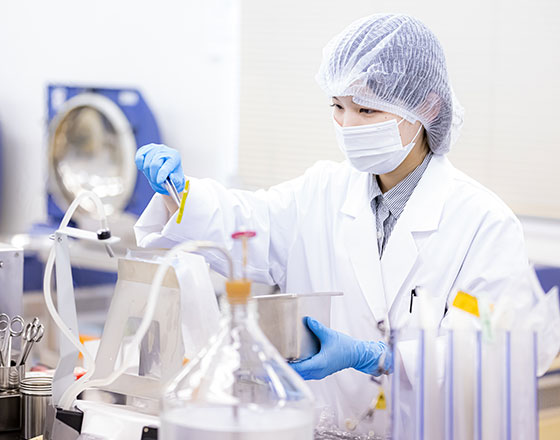 Zensho provides safe and delicious food
Zensho provides safe and delicious food
by checking the entire food chain directly.
Food Safety Test

We at Zensho Holdings inspect the food ingredients and the products we use at our own Central Research Center and microbiological testing laboratories.
The Central Research Center
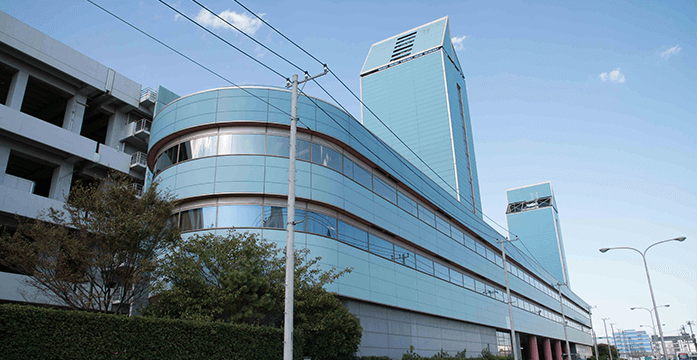
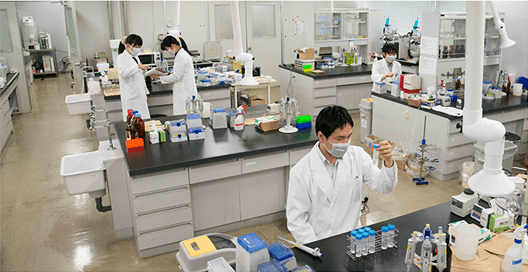
The Central Research Center was established in 2006 to confirm the safety of raw materials we use. Using analytical instruments of the highest standard in the food industry, the center conducts tests for agrochemical residues, veterinary drugs, heavy metals, radiation, etc. with high accuracy (correct values) and high sensitivity (detection of even trace amounts).
Raw Material Safety Confirmation
When procuring raw materials, our employees go directly to the production sites to check the environment surrounding the production site and the amount and method of pesticide use. Based on the "cultivation record", which describes what, when, and how much pesticides were used at the production site, raw materials are inspected at the analysis center to confirm that there are no problems with the amount or type of pesticides detected.
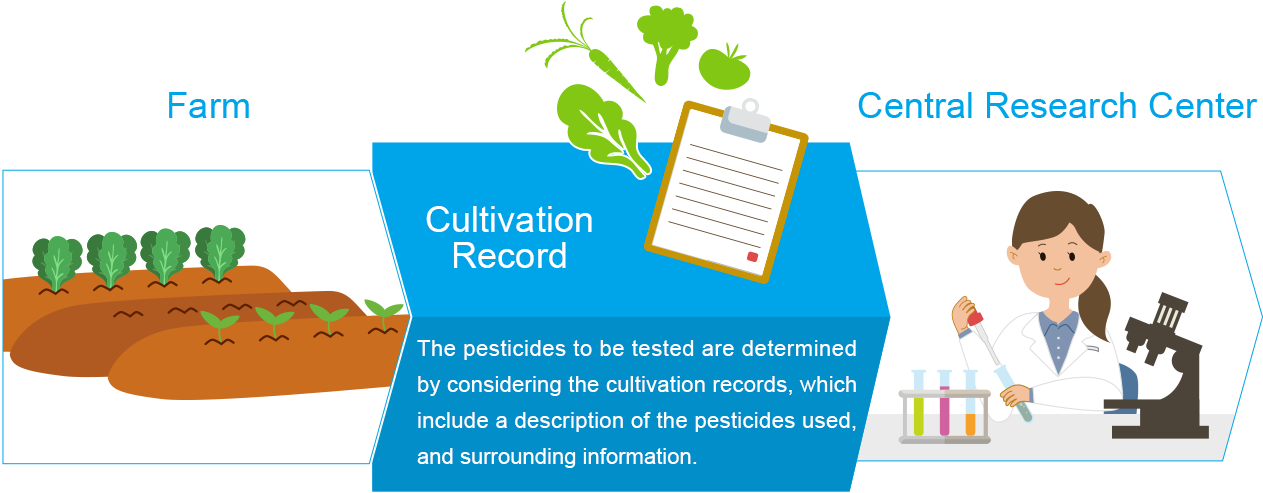
Analytical Instruments
We use a variety of world-class, high-performance analytical instruments to conduct our test. This allows us to accurately analyze extremely small amounts of substances.
Analytical instruments used:
LC-MS/MS (triple quadrupole/orbitrap)
- GC-MS/MS
- LC-ICP-MS
- Atomic absorption spectroscopy
- Mercury analyzer
- Real-time PCR, etc.
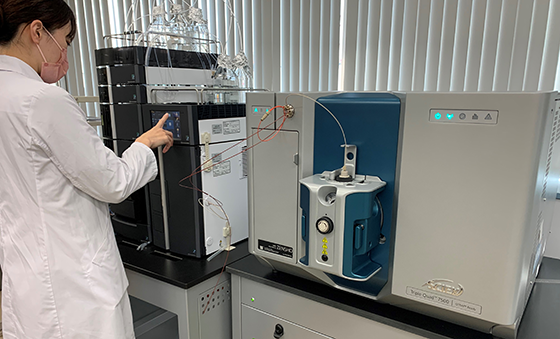
LC-MS/MS 7500
Advantages of Conducting Our Own Testing
General testing laboratories are mainly engaged in determining whether a product has passed or failed the maximum residue limits. By conducting our own analysis, we can take countermeasures without overlooking even the smallest trace.
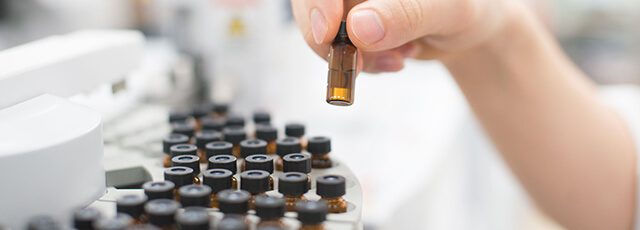
Pesticide Residue Test
We conduct inspections in compliance with the "Positive List System," which is a government regulation on residue standards for pesticides and other chemicals.
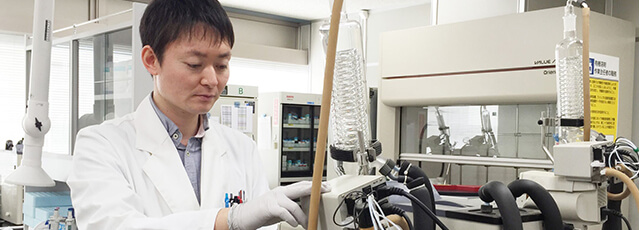
Veterinary Drug Test
Raw materials are inspected to ensure that they do not contain veterinary drugs used for livestock and aquaculture.
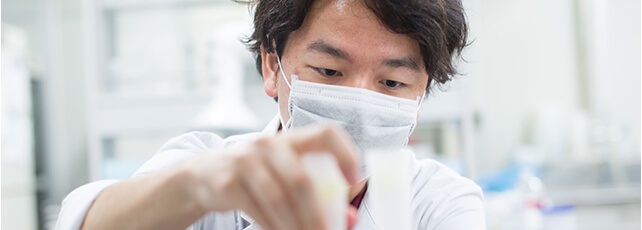
Heavy Metal Test
Food ingredients are inspected for the presence of toxic heavy metals such as Hg (mercury) and Cd (cadmium).
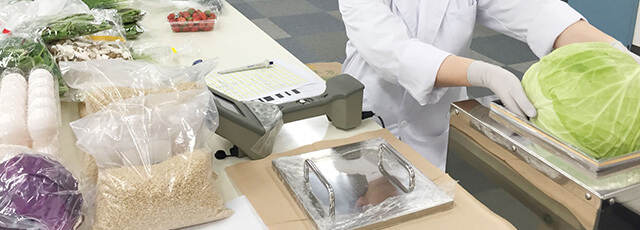
Radiation Test
We continuously measure the radiation levels of our rice, vegetables, and so on.
Microbiological Testing Laboratories
In order to provide safe and delicious food to our customers, we conduct in-house testing for bacteria, viruses and molds that can cause food spoilage and food poisoning.
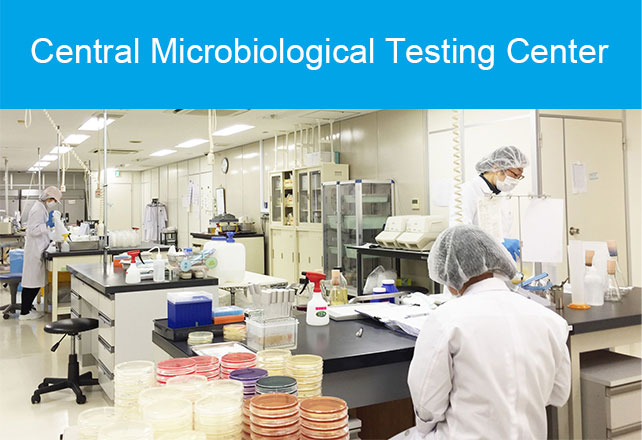
- ・Establishment of testing methods
- ・Establishment of microbiological criteria
- ・Evaluation of shelf life
- ・Swab test of food manufacturing factory

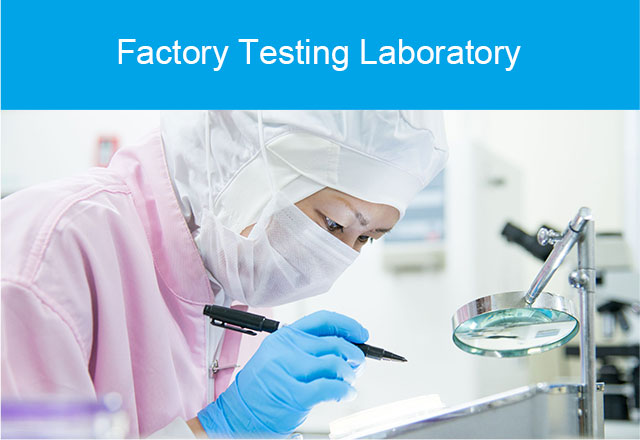
- Confirmation of food safety before shipment at each factory laboratory
- ・Inspection of raw materials
- ・Inspection of factory products
- ・Evaluate expiration dates for food products
- ・Wiping inspections of factories.
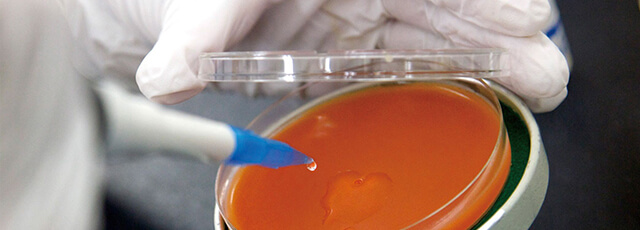
Establishment of Testing Methods and Microbiological Criteria
To assure safety, we set microbiological criteria and validate the test methods adopted by our testing laboratories.
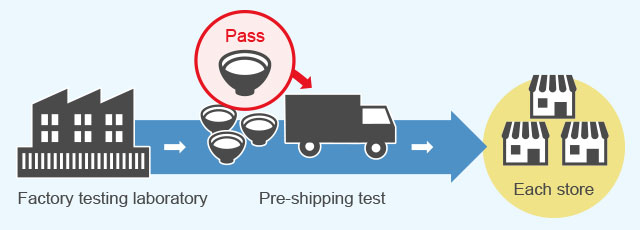
Pre-shipping Test
Our factory testing laboratories conduct test of bacteria to food products made at the factory. If the value exceeds the criteria, we ensure safety by stopping shipments, etc.
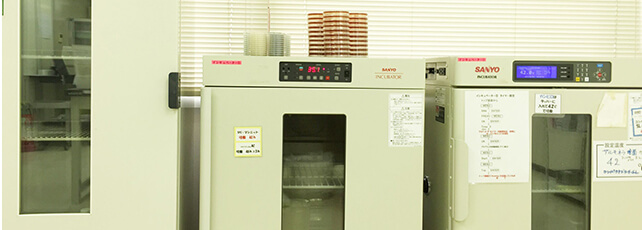
Evaluation of Shelf Life
The Microbiological Testing Center takes into consideration the environment from the time of production at the factory to the time the product is served at the store, and evaluates a use-by date that the product is safe to eat, tasty and ensuring no-waste.
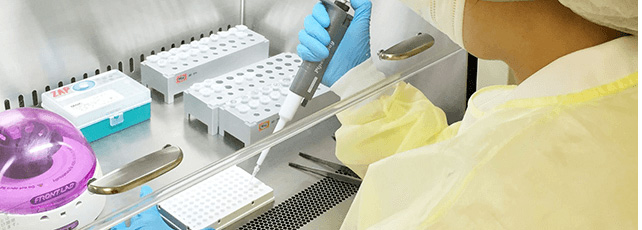
Swab test of bacteria/virus
We conduct regular swab test for kitchen equipments at store, etc.
Microorganisms to be tested
We test for contamination indicator and food poisoning bacteria as well as viruses by isolating bacteria using the culture method and genetic testing using the real-time PCR method.
- ・Total viable count
- ・Coliforms
- ・S. aureus
- ・Salmonella spp.
- ・Enterohemorrhagic E. coli (all serotypes)
- ・Listeria monocytogenes and other Listeria spp.
Bacteria to be tested:
- ・Norovirus
Viruses to be tested:
